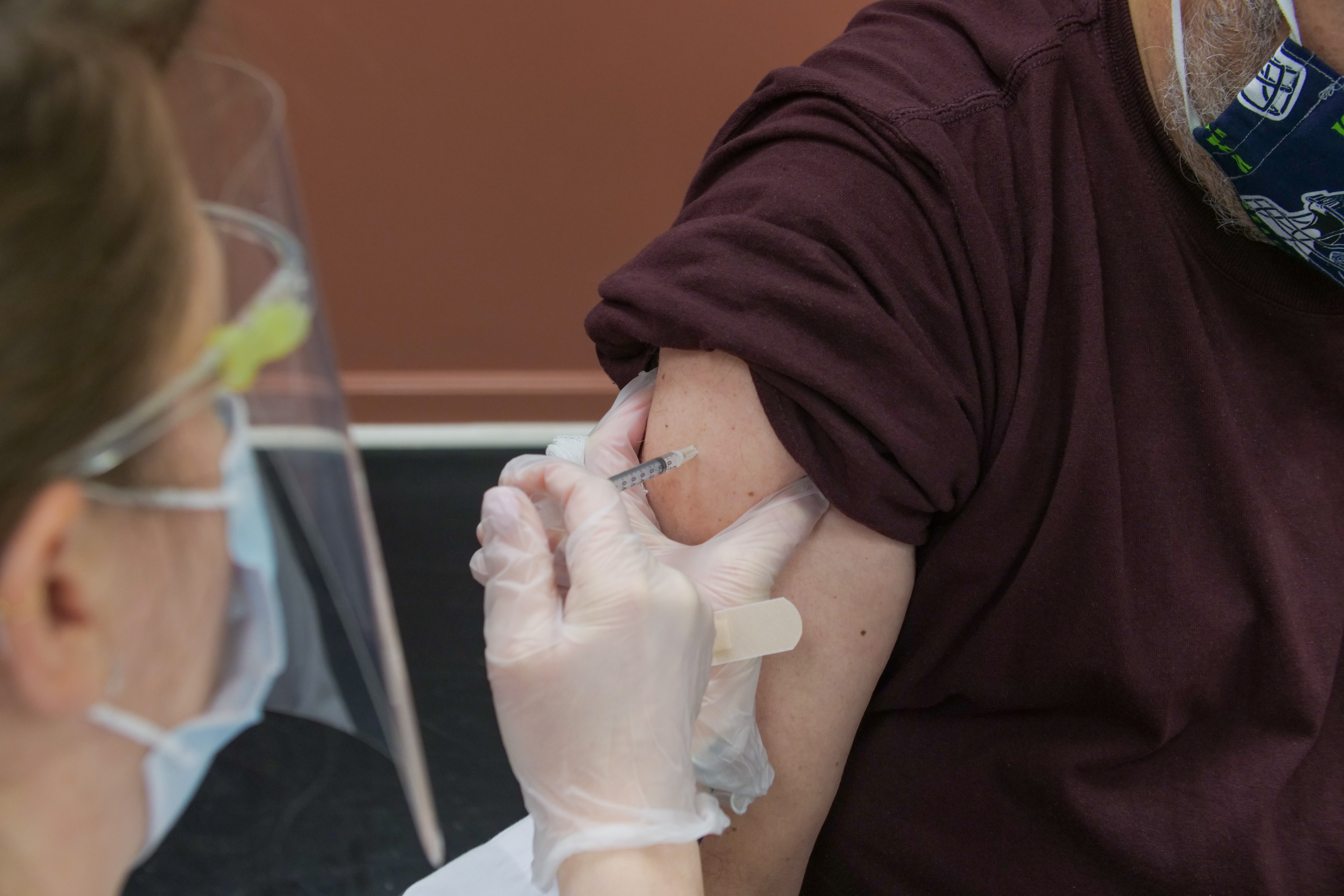COVID-19 vaccination is among the hottest topics of our current time, with strongly heated opinions arising on both sides of surrounding arguments. Colorado was in the national spotlight late in 2021 when The Washington Post released a piece on a new UCHealth rule and a patient’s refusal to comply. The policy, in accordance with other transplant centers around the country, requires recipients and living donors of almost all organ donations to be fully vaccinated against COVID-19. Dan Weaver, vice president of communications at UCHealth, and Colorado State Sen. Jeff Bridges both explained their points of view on this buzzing topic of public health.
“Transplant centers across the nation, including the UCHealth Transplant Center, have specific requirements in place to protect patients both during and after surgery,” Weaver said. “For example, patients may be required to receive vaccinations including hepatitis B, MMR and others. Patients may also be required to avoid alcohol, stop smoking … these requirements increase the likelihood that a transplant will be successful and the patient will avoid rejection.”
Requiring patients to be fully vaccinated against Covid is an addition to this list of precautions ensuring that the organ goes to patients with the highest risk both of survival and of a successful transplant.
“An organ transplant is a unique surgery that leads to a lifetime of specialized management to ensure an organ is not rejected, which can lead to serious complications, the need for a subsequent transplant surgery, or even death,” Weaver added. “Physicians must consider the short- and long-term health risks for patients as they consider whether to recommend an organ transplant.”
READ: These Aurora Doctors Are Fighting Racial Inequities in Vaccine Distribution
“A Scarce and Valuable Resource”
Senator Jeff Bridges comes at the topic from a more personal angle, as his father-in-law was the recipient of a successful kidney transplant before the pandemic. His commentary focuses on kidneys but could apply to any donation in question. “Human kidneys are a scarce and valuable medical resource, which means that as a society we have to manage this resource with the utmost care,” he said. “For those lucky enough to receive a kidney, I believe the donation confers a sacred responsibility to keep the kidney as healthy as possible so it can continue to give life after death.”
“My father-in-law Mike is one of those lucky people,” Senator Bridges said. He had to lose weight, stop smoking, and have open-heart surgery to repair a leaky valve before his transplant. Each precaution was to prime his body for a restorative procedure and a high survival rate. “If he had not chosen to do any one of those things, he would have been removed from the waiting list and denied a kidney,” he added.
Increased Risk
Both Bridges and Weaver commented on the increased risk of COVID-caused death for transplant patients. “COVID poses a severe threat to a successful long-term outcome from a kidney transplant because one in five transplant patients who catch COVID die,” said Bridges. Weaver compared the statistics, citing this article, along with others. The mortality rate for those who test positive for Covid is around 1.6% among the general population. That number shoots up to 20-30% for transplant patients who contract the virus. “A living donor could pass COVID-19 infection on to an organ recipient even if they initially test negative for the disease, putting the patient’s life at risk,” added Weaver of the requirement that the donor also be vaccinated. “Surgeries may be postponed until patients take all required precautions in order to give them the best chance at positive outcomes.”
“That’s in large part because the immunosuppressants which are necessary to prevent the body from rejecting a kidney also make it far more difficult for the body to reject COVID,” Bridges succinctly explained of the increased risk of death.
Senator Bridges concluded by saying that the vaccination requirements “don’t just reflect the best medical science. They also reflect our moral intuition that kidneys should go to folks with the strongest chance of using that gift to live a long and healthy life.”
For more information on the risks of COVID-19 for organ transplant patients, check out these resources:
COVID-19-related mortality in kidney transplant and dialysis patients
Is COVID-19 infection more severe in kidney transplant recipients?
Coronavirus Disease 2019 in Solid Organ Transplant: A Multicenter Cohort Study





